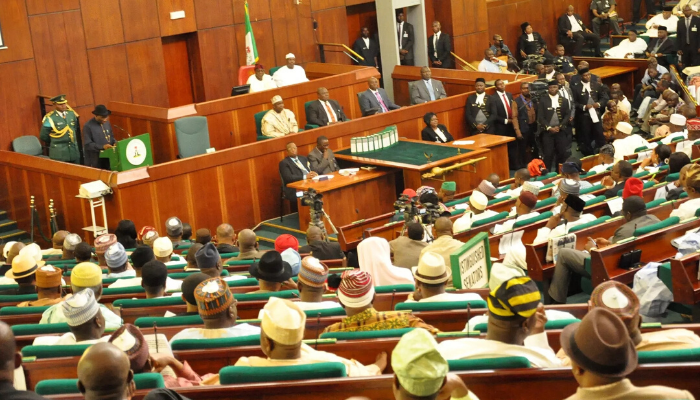 Businessday Ng –
Businessday Ng –
The increase in Tertiary Education Tax (TET) and new taxes in the 2022 Finance Bill, which was passed by the National Assembly last week, have been described as another cause for concern for businesses in Nigeria.
Some of the provisions in the bill include the imposition of excise duties on all services with rates to be determined by presidential order, the imposition of a 0.5 percent tax on all eligible imports from non-African countries to fund Nigeria’s obligations to international organisations and the increase in TET from 2.5 percent to three percent of company profits.
“It will affect the cost of production and operating cost which would undermine investors’ confidence,” Muda Yusuf, chief executive officer of Centre for the Promotion of Private Enterprise, said.
According to him, this will effectively move corporate tax to almost 35 percent, which is one of the highest globally. “All of these have far-reaching implications for investors and citizens,” he said.
Earlier in December, the Federal Executive Council approved the Finance Bill 2022 for transmission to the National Assembly for consideration and passage.
The bill is anchored on five fundamental policy drivers, including tax equity; climate change; job creation/economic growth; tax incentives reform and revenue generation/tax administration.
Ayodeji Ebo, managing director/chief business officer at Optimus by Afrinvest Limited, said the proposed taxes may not translate to improved revenue for the government because of high inflationary pressures.
“The cost of doing business is going up and is affecting the survival rate of various businesses in the country. And instead of the government increasing the tax net, they are just increasing the rates,” he said.
Data from the National Bureau of Statistics (NBS) shows that inflation in Africa’s biggest economy rose for the 10th straight month to 21.47 percent in November, one of the highest in the world, from 15.60 percent in January 2022.
The high inflationary pressures is also one of the major economic headwinds that led to a slow growth in salaries and wages, which grew at the slowest pace since the third quarter of 2020 to 3.93 percent in Q2 2022 from 6.48 percent in the previous quarter, according to the NBS.
Taiwo Oyedele, West Africa tax leader at PwC Nigeria, said it is instructive that the TET rate was only recently increased from two percent to 2.5 percent via the 2021 Finance Act.
Read also: Company tax for Q3 2022 stood at N810.19bn — NBS
“This effectively increases Nigeria’s corporate income tax rate to about 36 percent which is one of the highest rates in the world (i.e. 30 percent Company Income Tax (CIT) and three percent TET equivalent to six percent CIT given the larger tax base for TET),” he said.
Oyedele also said over N2 trillion has been collected from Education Tax in the past 10 years alone. “Surprisingly there is no focus on accountability but a further increase which places yet more burdens on already struggling businesses.”
Companies currently pay multitude of taxes, fees, levies to state governments, local governments and regulatory agencies, said Muda.
“This is not the way to promote economic recovery, job creation and poverty alleviation. Already 133 million citizens are in extreme poverty. These measures would further impoverish the citizens as these additional taxes would be ultimately borne by them,” he said.
10 teachers in Nigeria, others win grant to improve education in Africa
Stakeholders call for innovative solutions to drive early childhood literacy
Surge in Nigerians pursuing foreign education as local schools rot
Number of Nigerians studying in UK hits 8-year high
Get the best of world News delivered to your inbox daily
latest news
Shippers Council establishes ‘Port Service Support Portal’ to handle…
Kia to begin pre-orders for EV9 for Korean market by Q2
Government should accord Nigerians in diaspora right to vote – Offoha
Artificial intelligence will bridge Africa’s $120bn lending gap – VerifyMe CEO
Kwara APC leader urges members to embrace peace, reconciliation
Business Day, established in 2001, is a daily business newspaper based in Lagos. It is the only Nigerian newspaper with a bureau in Accra, Ghana. It has both daily and Sunday titles. It circulates in Nigeria and Ghana
BDlead
Lagos, four others owe 34% of states’ $5.34trn…
Concerns mount over impending floods amid ‘governments…
Nigeria to gain from $5.07bn electric motorcycles market…

